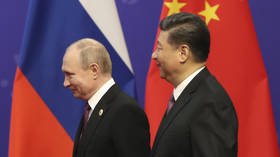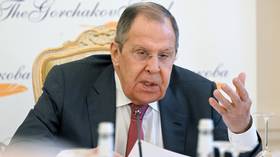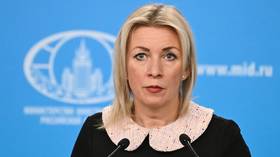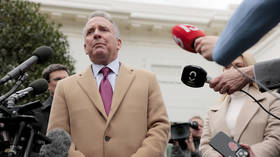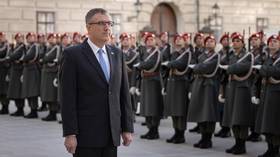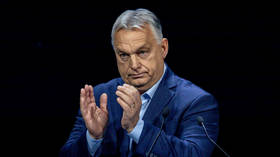Kremlin reveals new independent Russian-Chinese financial systems
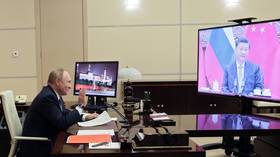
Russia and China will develop shared financial structures to enable them to deepen economic ties in a way that foreign states will be unable to influence, the Kremlin has announced following talks between the countries’ leaders.
The move appears to be a response to a series of warnings that Western nations could push to disconnect Russia from the Brussels-based SWIFT financial system as a form of sanctions.
The payment platform underpins the vast majority of international transactions. During the talks on Wednesday, Russian President Vladimir Putin and his Chinese counterpart Xi Jinping called for increasing the share of national currencies in mutual settlements and expanding cooperation to provide Russian and Chinese investors with access to stock markets, said Yuri Ushakov, Putin’s foreign policy advisor.
Ushakov said “particular attention was paid to the need to intensify efforts to form an independent financial infrastructure to service trade operations between Russia and China.”
“We mean creating an infrastructure that cannot be influenced by third countries,” the Kremlin aide added.
Ahead of the video summit, Kremlin Press Secretary Dmitry Peskov hinted that economic discussions were likely to be on the agenda for the two heads of state.
Both Russia and China are said to be increasingly looking to move away from using the US dollar as the main currency of international trade, instead using their own denominations to underpin the booming volume of Moscow-Beijing trade.
Last week, US Under Secretary of State Victoria Nuland said that the White House, along with a number of Western European nations, was mulling completely isolating Moscow from the global financial system should Russian troops dare to invade Ukraine.
Just the day before, Bloomberg had suggested that Washington could target the country’s major banks and even disconnect Moscow from the SWIFT network.
At the end of November, the boss of Russia’s state-run oil giant Rosneft, Igor Sechin, accused Washington of manipulating the dollar to further its own interests and said the currency was losing its appeal due to the US Federal Reserve’s policy of quantitative easing – essentially flooding the global economy with an excess supply of money.
Earlier this year, Russian Foreign Minister Sergey Lavrov suggested that Beijing and Washington “need to move away from the use of Western-controlled international payment systems.” The top diplomat also accused the US of seeking “to limit the technological development opportunities of both the Russian Federation and the People’s Republic of China.”
